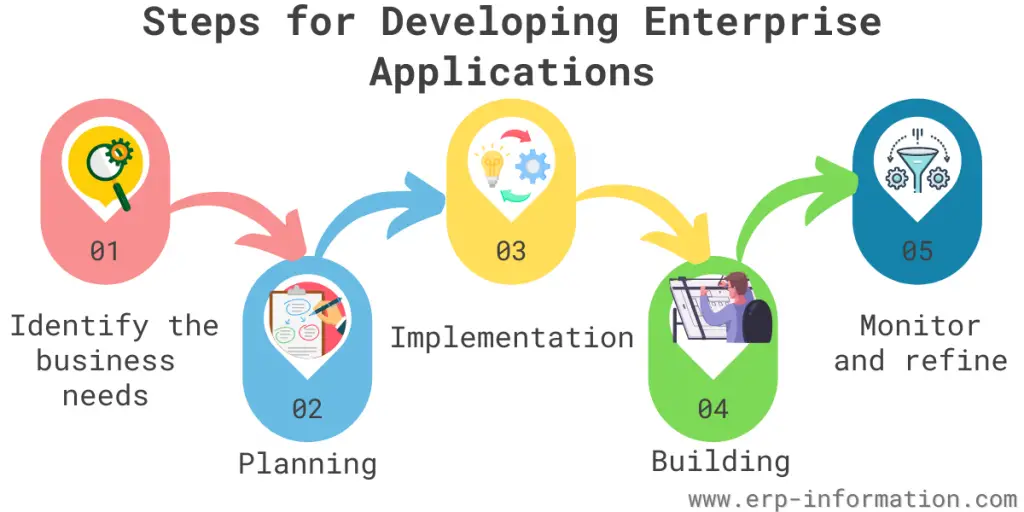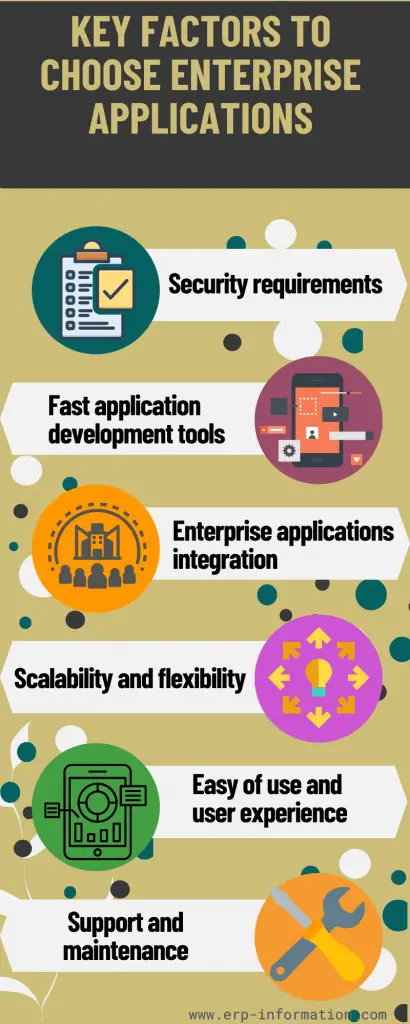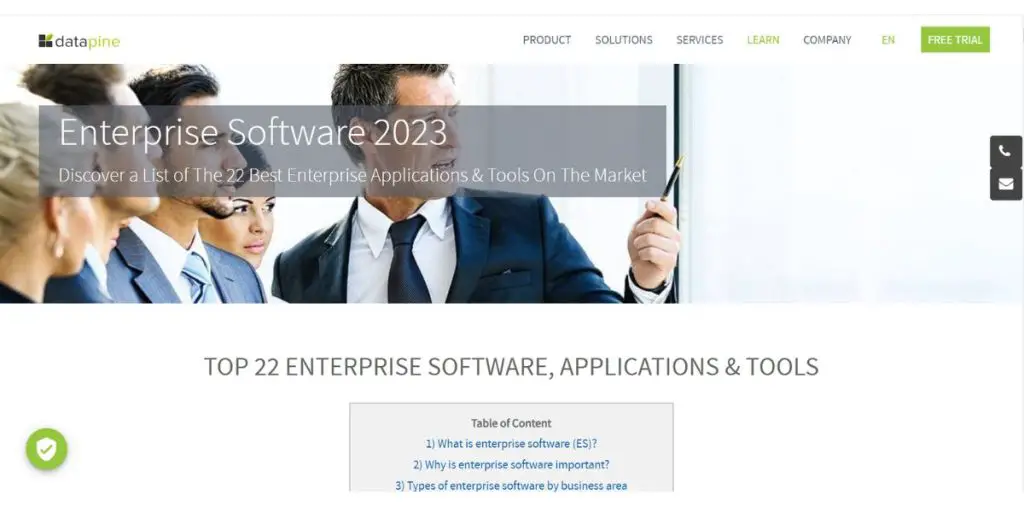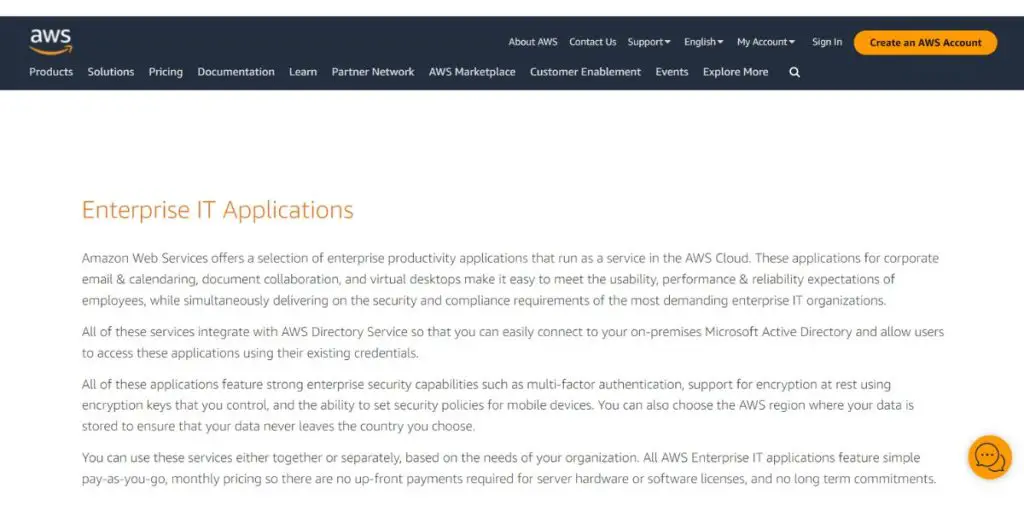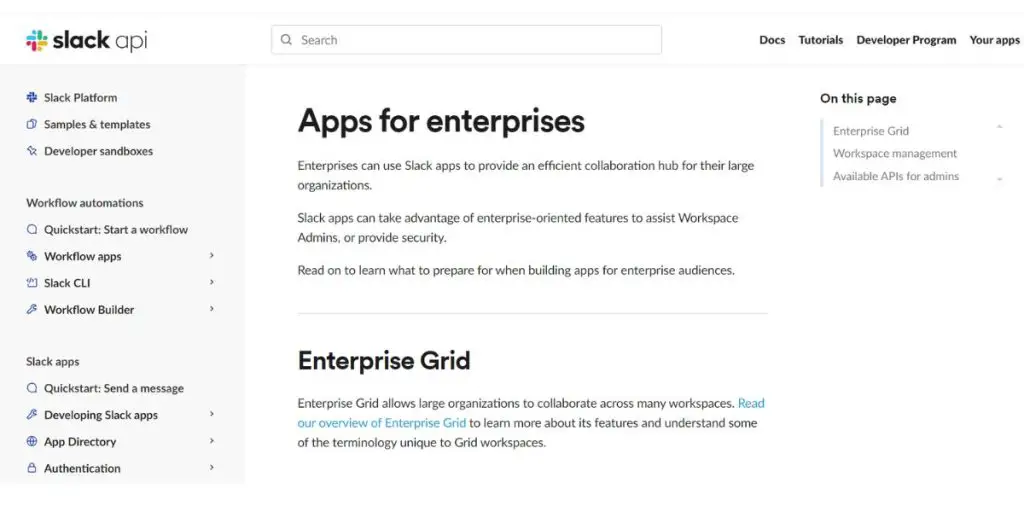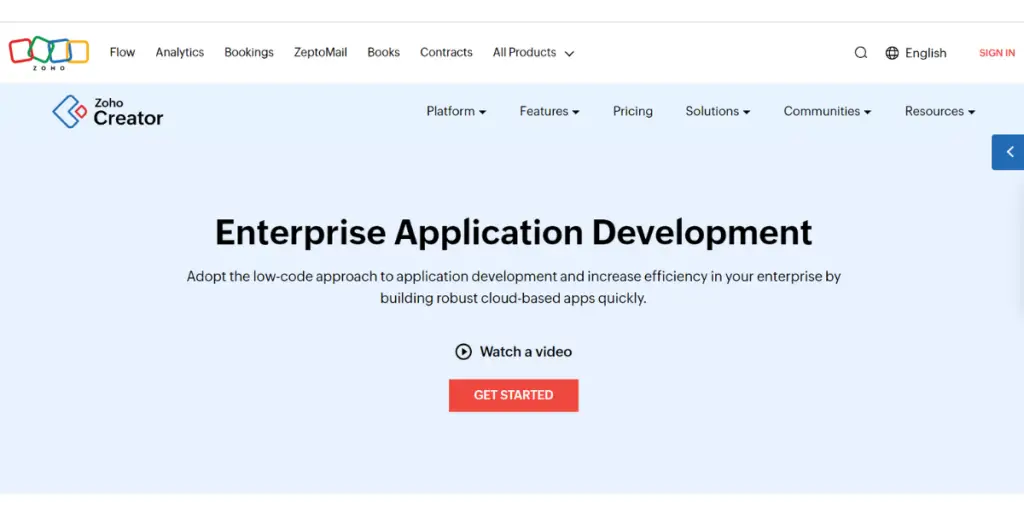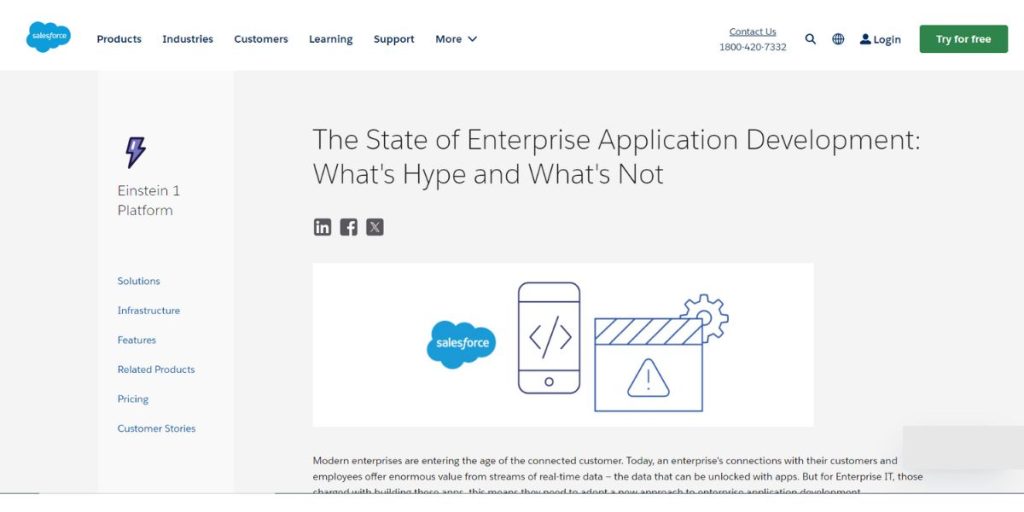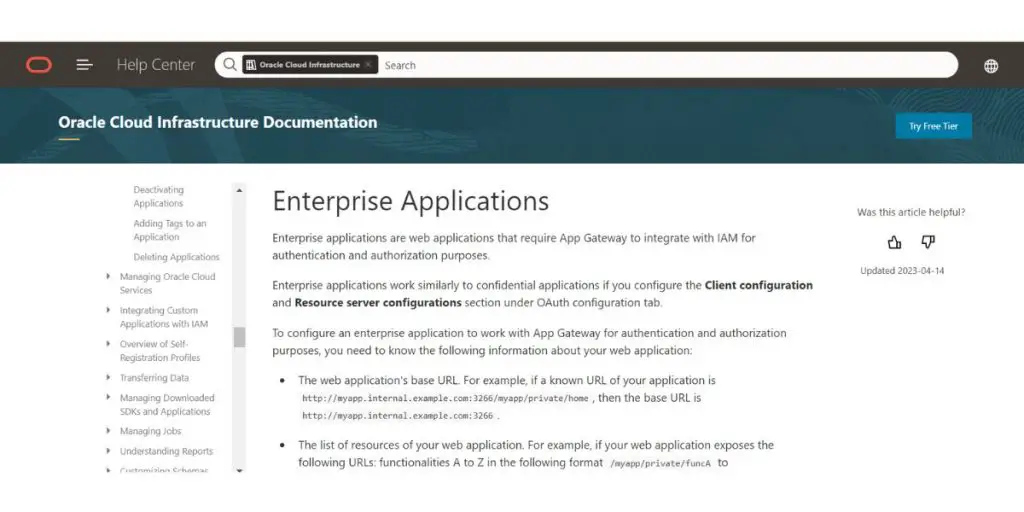
Enterprise applications are a crucial part of modern business operations, providing everything from integration and software support to management and design.
So if you wish to get started with enterprise applications or improve your existing skills and knowledge, this blog post is for you.
Here, we will explore the definition of enterprise applications, their developing steps, and the services offered. We will also discuss steps for choosing the right enterprise applications, challenges, and the best available tools.
Enterprise applications
Enterprise applications are designed to help businesses streamline and automate their operations.
Enterprise applications allow users to control every aspect of the business, from accounting and customer relationship management to marketing and manufacturing.
Whether a start-up or an established enterprise, having a comprehensive set of tools can help you grow and optimize your business processes.
Enterprise application development steps
Identify the business needs
Enterprise applications involve defining and refining the project’s scope, deciding features and prioritizing functionalities, and communicating these requirements to relevant stakeholders.
Planning
Once the project’s scope has been defined, you can begin planning its implementation by identifying all the components that need to be developed or integrated to meet those goals. That may include databases, servers, web services, and user interfaces.
Implementation
Next, you must determine how these components will be implemented to achieve maximum efficiency and performance.
That can involve evaluating different programming languages, frameworks, toolsets, and other development resources to select the best ones for your particular situation.
Building
Once these technologies have been selected, you can build out each component using a combination of established best practices and iterative testing methodologies.
That may include establishing automated workflows for regression testing or conducting user acceptance testing with real users or clients before deploying your application at a large scale.
Monitor and refine
Finally, it is important to continually monitor and refine your application over time to ensure that it continues working well even as your business needs evolve or new technologies become available.
That may involve adding new features or functionalities based on changing requirements from stakeholders or troubleshooting and fixing issues that arise during regular operations.
Services offered by enterprise applications tools
IT services
IT services are another key component of enterprise systems, allowing businesses to manage their infrastructure and operations through software.
These tools typically include data management, backup and recovery, cloud integration, infrastructure monitoring, security, and more.
By leveraging these services, businesses can increase efficiency and agility while reducing costs and risks.
Supply chain management
Supply chain management is another key area where these applications can help businesses streamline their operations.
These tools typically include inventory control, order fulfillment, logistics management, and more features. As a result, companies can use these services to optimize their supply chain processes to improve efficiency and reduce costs.
Accounting and billing
Accounting and billing software are essential for enterprises that handle complex financial transactions, such as invoices, receipts, and payments.
These tools help automate invoicing, track expenses, and manage budgets.
Security
Security is a top priority for enterprises that store sensitive data or work with third-party partners. Security tools like firewalls, encryption, and anti-virus software help protect important business information from cyber threats and breaches.
Marketing
Enterprise marketing solutions allow businesses to manage campaigns, monitor customer behavior, and analyze data across multiple channels.
That enables marketers to optimize their efforts and improve customer engagement, conversion rates, and ROI.
Human resource management
HR management tools help businesses manage their workforce and track hiring, onboarding, training, and team-building processes.
These systems can also help enterprises to implement and maintain compliance with HR regulations while providing insights into team performance.
Workflow automation
Workflow automation allows enterprises to create and manage complex processes without relying on manual, labor-intensive methods. As a result, automating these tasks can improve efficiency, reduce errors, and increase productivity.
CRM
Customer relationship management is designed to help businesses manage customer interactions, from managing accounts and sales leads to marketing campaigns and support tickets. That allows companies to increase customer loyalty, improve satisfaction, and boost revenue.
Business intelligence
A key part of effective enterprise software is business intelligence (BI). By analyzing large amounts of data and providing action
Enterprise systems integration (ESI) refers to the process of combining different software and hardware components into one cohesive system. That enables businesses to automate and streamline processes, increasing efficiency, and productivity.
System Integration
Enterprise systems integrators are experts in connecting different software solutions and data sources across the enterprise.
They help businesses automate their processes by integrating disparate technologies and software platforms, such as CRM and ERP systems. With system integration services, companies can streamline their operations and gain valuable insights into their processes.
Process management
Process management tools enable enterprises to implement best practices for optimizing and automating their business processes.
As a result, these tools help companies improve employee performance, reduce errors, minimize costs and waste, and deliver better customer experiences.
Additionally, many enterprises use specialized tools like databases and content management systems to manage their data and content.
How to choose the right enterprise applications for your business?
Choosing the right enterprise solution for your business is important to evaluate your needs and priorities carefully. Some key factors include,
Security requirements
Enterprise systems often contain sensitive or confidential information, so choosing a solution that prioritizes security is vital.
Security features you should look for include data encryption, intrusion detection and prevention systems, multi-factor authentication, and user access controls.
Fast application development tools
Another key consideration is the ability to develop, deploy, and scale your applications quickly.
Make sure any software you’re considering has tools and features that facilitate rapid development, such as cloud hosting, version control systems, integrated testing tools, and agile project management software.
Integration
Another important factor to consider when choosing an enterprise system is integrating it with other systems and software platforms. Look for compatible solutions that easily integrate with existing databases, ERP systems, and other software solutions.
Scalability and flexibility
Your business needs may change, so choosing the right enterprise solution is important.
Look for solutions that offer cloud-based deployment, easy integration with other systems and platforms, and a wide range of customization options.
Ease of use and user experience
Enterprise solutions need to be intuitive and user-friendly. It means they should be intuitive, easy to navigate and understand, and designed with user experience (UX) in mind. In addition, look for applications with clean interfaces, fast performance, and a minimal learning curve.
Support and maintenance
While enterprise software is self-managed, you will still need to work with a vendor or service provider for ongoing maintenance and support.
Therefore, choosing an enterprise application that offers high-quality customer service, including responsive technical support and dedicated account managers, is important.
Additionally, looking for a solution backed by a robust knowledge base with tutorials and user guides would be best.
Challenges of enterprise applications
Lack of technical expertise
One of the main challenges in developing enterprise solutions is the need for specialized technical skills and knowledge. That can make it difficult to find developers with the right skills and experience, especially for large and complex applications.
Time constraints
Another challenge in developing enterprise solutions is meeting tight deadlines and managing competing priorities. That can pressure developers to complete projects quickly, compromising quality and increasing the risk of errors and other issues.
Budget constraints
It can be complex and costly to develop, especially for larger organizations with more extensive needs. That can make managing costs and allocating resources difficult, which may require organizations to prioritize or limit their development efforts.
To overcome these challenges, organizations should consider
- Investing in tools and technologies that can help streamline development processes and reduce the time and cost of building applications.
- They should also look for robust support and maintenance solutions and user-friendly features to improve usability and maximize user satisfaction.
Top 9 Enterprise Applications Tools
1. Microsoft Dynamics CRM
Microsoft Dynamics CRM is comprehensive enterprise software that provides a wide range of features and tools for businesses of all sizes. Key benefits include sales management, marketing automation, customer service, support, and data analysis.
2. Datapine
Datapine is a powerful business intelligence tool that helps enterprises better understand their data and business performance. Features include automated reporting, advanced analytics, customized dashboards, and real-time monitoring.
3. Google Analytics
Google Analytics is a popular web analytics tool that helps businesses track and analyze website traffic, visitor behavior, and key performance metrics. Features include custom reporting, data segmentation, and goal tracking.
4. AWS
AWS is a comprehensive cloud-based platform that provides users access to various tools and services for building, deploying, and managing enterprise solutions. Key features include cloud hosting, storage solutions, development tools, and data analytics.
5. Slack
Slack is a popular messaging and collaboration tool for businesses of all sizes. With features like group messaging, file sharing, and integration with other productivity tools, Slack makes it easy to stay connected and collaborate in real-time.
6. Zoho
Zoho is a popular enterprise applications tool that offers a wide range of business solutions, including CRM, project management, accounting, finance management, marketing automation, and more. Zoho’s key features include the following:
- Powerful customization options.
- A robust API and SDK.
- Mobile access.
- Collaboration and communication tools.
- Integrations with other leading platforms and applications.
7. SAP
It is a leading enterprise application tools and services provider, offering a comprehensive suite of software solutions for businesses across various industries.
Some key features of SAP software include business process management, workflow automation, data integration, and reporting and analytics.
8. Salesforce
Salesforce offers a suite of cloud-based solutions for CRM, marketing automation, customer service, and more. Key features include real-time analytics, mobile access, social media integration, and collaboration tools.
9. Oracle
Oracle provides various ERP, HR, supply chain, and customer service solutions. In addition, the company’s cloud-based suite includes tools for data integration, analytics, machine learning, performance monitoring, and more.
FAQ
What are mobile enterprise applications?
Mobile enterprise applications are software programs developed for smartphones and other mobile devices in a business setting.
Mobile applications provide employees access to corporate data and systems from anywhere, at any time. As a result, they can be used to improve productivity by helping workers stay connected and organized and reducing the need for paperwork.
Conclusion
Enterprise applications are software programs that help businesses run more efficiently and effectively. Enterprise applications can include tools for CRM, project management, data analysis, and more and are typically accessed via a mobile device for added convenience and flexibility.
So whether you’re looking for sales management software, marketing automation tools, or productivity and collaboration solutions, an enterprise application can meet your needs.
